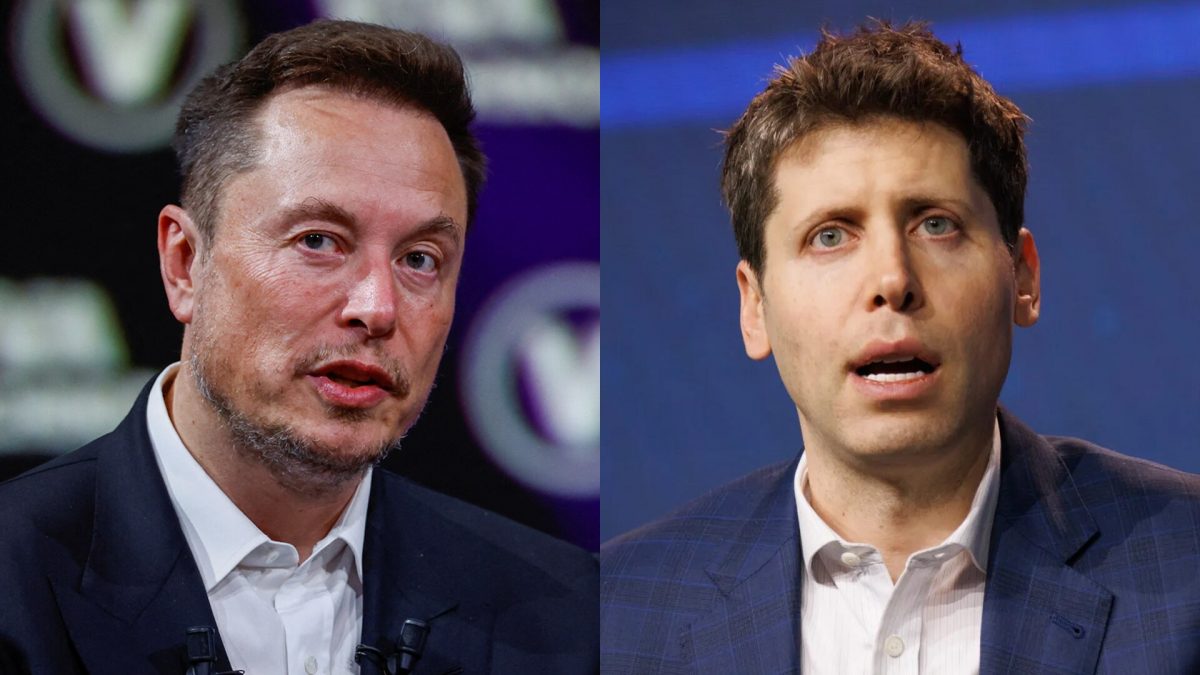In a rather bold move that would see one of the biggest hostile takeovers in the tech space in ages, a consortium of investors led by Elon Musk have made a massive $97.4 billion offer to acquire the nonprofit that controls OpenAI.
The AI giant, led by Sam Altman, has been gradually shifting from its original nonprofit model to a for-profit structure—something Musk has vocally opposed for years. The tech billionaire seems determined to stop that transition in its tracks with this high-stakes bid.
Musk’s group includes his AI company, xAI, along with other key players like Baron Capital Group and Emanuel Capital. The bid isn’t just about money; it’s a power play that could significantly reshape the future of AI development and governance. And of course, with Musk and Altman’s history of clashes, this latest development is likely to add fuel to the fire.
As soon as the Wall Street Journal broke the news of Elon Musk’s bid to take control of OpenAI,, Sam Altman took to X (formerly known as Twitter), to say: “no thank you but we will buy twitter for $9.74 billion if you want.” To this, Musk simply replied with the word, “Swindler”.
no thank you but we will buy twitter for $9.74 billion if you want
— Sam Altman (@sama) February 10, 2025
Musk vs Altman: A long-running feud
The rivalry between Musk and Altman is nothing new. Musk came on board OpenAI as a co-founder back in 2015, with the intention to create a nonprofit organisation focused on safe and transparent AI research. But their partnership didn’t last long. Musk left the organisation as it started gaining traction and, in typical Musk fashion, went on to form his own AI venture, xAI, in 2023. Since then, he’s become one of OpenAI’s most vocal critics.
Last year, Musk took legal action against OpenAI, accusing its leadership of betraying the company’s original mission by chasing profits. He even sought a court injunction to block its transition to a for-profit structure. Despite his efforts, OpenAI pushed ahead, arguing that the shift was necessary to secure funding for advanced AI research and development.
Now, Musk is raising the stakes once again. In a statement, he expressed his belief that OpenAI needs to return to being an open-source, safety-first organisation. The billionaire clearly isn’t backing down. However, Altman wasn’t too impressed with the offer. In a cheeky response posted on X (formerly Twitter), Altman said he’d rather buy Twitter for $9.74 billion instead. His public rejection of Musk’s bid didn’t leave much room for negotiation, though it’s unlikely Musk will give up that easily.
Power struggles and legal wrinkles
While the public jabs between Musk and Altman make for entertaining headlines, there are serious legal and governance questions in play. OpenAI’s nonprofit division holds significant control over the for-profit side, and any major decision about its future must align with the nonprofit’s mission. This includes ensuring that the nonprofit’s financial interests are protected.
Legal experts have noted that Musk’s bid could complicate OpenAI’s plans to distance itself from nonprofit oversight. If the board were to reject Musk’s offer in favour of a lower valuation from another investor, it might have to justify why it’s not taking the better deal. This could lead to increased scrutiny and possibly even legal challenges regarding the board’s fiduciary responsibilities.
Analysts believe this could force OpenAI into a difficult position. On one hand, the company wants the freedom to operate like a for-profit enterprise to attract investors. On the other hand, Musk’s bid sets a high benchmark that could be hard to ignore. As one expert put it, this move has thrown a “wrench” into OpenAI’s fundraising plans, potentially complicating future negotiations with other investors.
Can musk make it happen?
Musk might be rich—very rich—but even for him, pulling off a deal of this size is no small feat. OpenAI was recently valued at around $157 billion, with SoftBank reportedly considering a new funding round that could push its valuation to a staggering $300 billion. For Musk to acquire control, he’ll need to secure enormous amounts of capital.
His options include selling some of his Tesla shares, taking loans against those shares, or using his stake in SpaceX as collateral. However, after his costly $44 billion purchase of Twitter in 2022, his leverage with banks may be limited. Financing such a bid will likely require a mix of creative strategies and high-stakes negotiation.
Industry watchers say Musk’s bid could disrupt OpenAI’s current fundraising efforts. The consortium of investors backing him adds credibility to his offer, making it difficult for OpenAI to dismiss out of hand. The nonprofit’s board will need to weigh its options carefully, balancing financial concerns with its long-term goals.
For now, the ball is in OpenAI’s court. Whether Musk can ultimately wrest control of the company remains to be seen, but one thing is certain—this battle between two of the tech world’s biggest personalities isn’t over yet.


)

)
)
)
)
)
)
)
)



